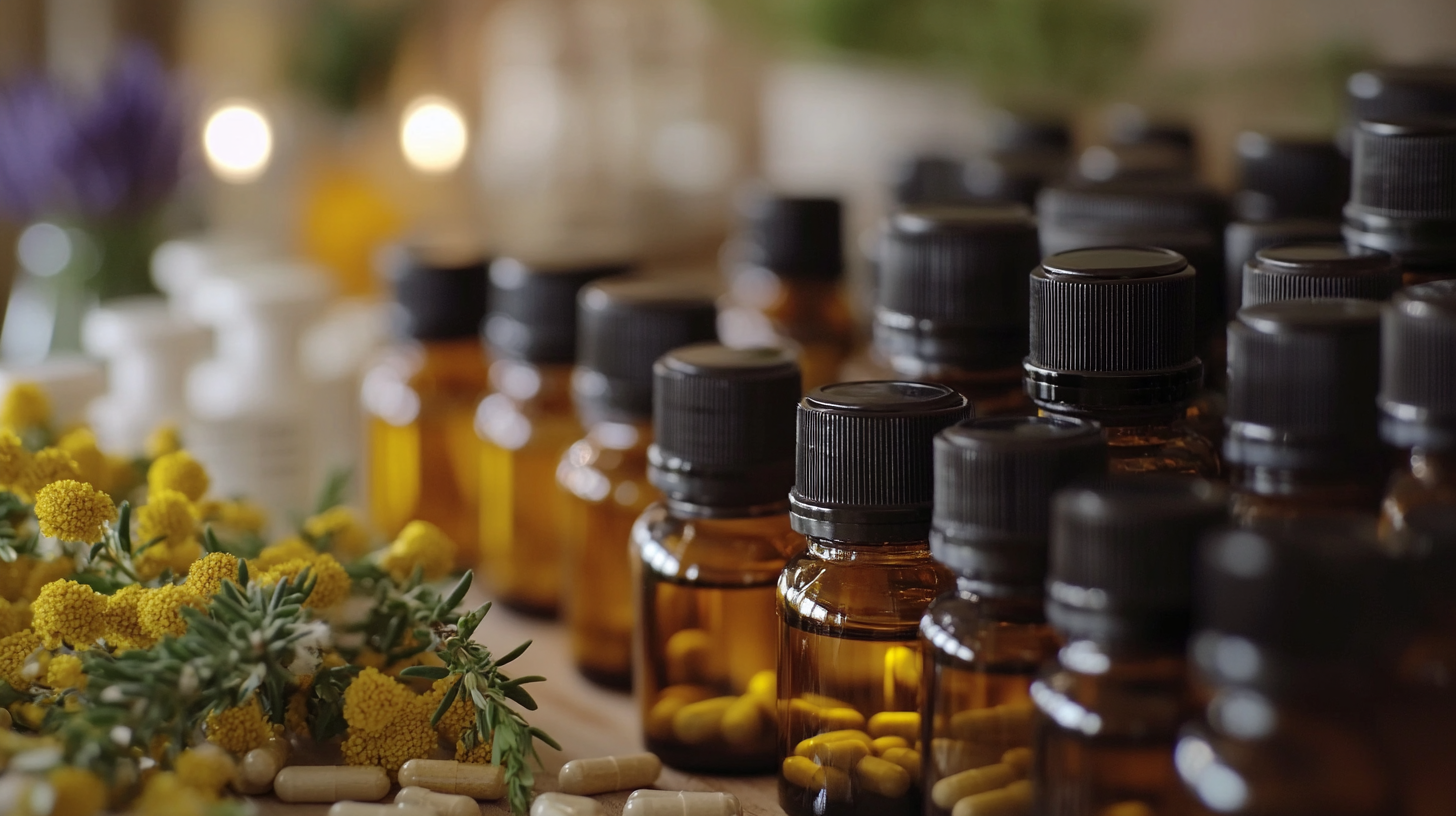In recent years, there has been a significant resurgence of interest in natural remedies as people seek holistic approaches to health and wellbeing. Among the various options available, botanical extracts have emerged as a powerful tool that harnesses the benefits of nature. These extracts, derived from plants, contain a multitude of bioactive compounds that can enhance physical health, support mental clarity, and promote overall vitality. Their potential healing properties have been celebrated across cultures and centuries, making them an integral part of traditional medicine as well as modern wellness practices.
As we delve deeper into the world of botanical extracts, it becomes evident that their applications extend far beyond mere supplements. From enhancing skin health to bolstering immune function and even alleviating stress, these natural wonders offer a versatile range of solutions for contemporary health challenges. Discovering how to effectively incorporate botanical extracts into our daily routines can lead to a more balanced and nourished lifestyle. Join us as we explore the myriad benefits of these potent plant-derived formulations and learn how to unlock their full potential for improved health and wellbeing.

Botanical extracts have gained significant attention in recent years for their extensive health benefits, particularly in the context of preventative healthcare. Understanding these extracts begins with grasping their origins. Botanical extracts are derived from various parts of plants, including leaves, roots, flowers, and seeds. These extracts are rich in phytochemicals—natural compounds known for their therapeutic properties. The increasing body of research underscores their potential in managing ailments like postmenopausal osteoporosis, where specific plant-based compounds are identified for their bone-strengthening effects. Recent studies emphasize the relevance of metabolomics in enhancing our understanding of botanical extracts. For instance, research indicates that analyzing the metabolite profiles of medicinal plants can facilitate the identification of bioactive compounds that contribute to their health benefits. Such analysis can differentiate between chemotypes of plants based on geographic origins, enabling researchers to screen for specific chemical markers and their corresponding health effects. This is particularly true for plants like Atractylodes lancea, where volatiles play a crucial role in determining therapeutic qualities. Moreover, the advancements in analytical techniques have paved the way for more nuanced studies of plant extracts. For instance, investigating the antioxidant activities of species like Pyrrosia petiolosa has revealed significant variations based on their growth habitat. The findings suggest that understanding plant community composition can lead to more effective applications of botanical extracts in health formulations. The possibilities are vast, with ongoing research aimed at systematically compiling evidence that bolsters the integration of botanical extracts into mainstream health practices, ultimately paving the way for a deeper appreciation and harnessing of nature’s pharmacy.

Botanical extracts have long been revered for their potential health benefits, merging traditional remedies with modern science. Recent developments in dietary supplements have focused on harnessing these natural ingredients to support various aspects of health and wellbeing. For instance, some formulations aim to promote metabolic function and maintain healthy blood sugar levels while providing essential antioxidant benefits. Such blends reflect the growing trend toward integrating herbal wisdom into contemporary nutritional science.
Research has unveiled numerous botanical ingredients that contribute to specific health outcomes. For example, certain extracts have been clinically validated for their role in natural fat loss and overall wellbeing. The emphasis is not merely on isolated compounds but on combining traditional herbal elements with scientifically backed findings to create holistic health solutions. This synergy has resulted in products that not only cater to physical health—like blood and gut management—but also address mental wellbeing, underscoring the interconnectedness of bodily systems.
As we navigate an era marked by a surge in wellness trends, understanding the science behind these botanical extracts becomes crucial. The effectiveness of such supplements relies heavily on their ability to work harmoniously with the body's natural processes. As research progresses, we can expect to see even more innovative formulations that leverage the power of nature to foster lasting health benefits.

Botanical extracts have long been recognized for their potential health benefits, making them a popular choice for enhancing overall wellbeing. One notable extract is bay leaf, which, while primarily used for culinary purposes, may also promote wound healing and improve cognitive function. However, it is important to note that further research is necessary to confirm these effects in humans.
Another intriguing plant is pygeum, derived from the bark of the African cherry tree. This herbal extract is associated with several health benefits, particularly in reducing inflammation, which can lead to various chronic conditions. Meanwhile, rosemary stands out not only for its aromatic qualities but also for its rich content of iron, calcium, and vitamin B6, alongside antioxidants that support overall health.
Lemon balm is another botanical that has a history of traditional use as an herbal remedy. Known for its calming effects, it may offer benefits in reducing anxiety and promoting sleep. On the other hand, pomegranate peels are gaining attention for their bioactive compounds, which enhance the nutritional content of foods and provide functional advantages.
While many botanical extracts show promise, it's essential to approach them with caution. A recent study highlighted the potential hepatotoxicity of certain herbal supplements consumed by a notable percentage of adults. This underscores the importance of further research and careful consideration of the extracts we choose to incorporate into our health routines. As the popularity of these natural remedies continues to grow, staying informed and mindful of their benefits and risks is paramount.

Incorporating botanical extracts into your daily routine can significantly enhance your health and wellbeing, particularly in managing metabolic health. Recent studies suggest that plant-based compounds may play a crucial role in supporting metabolic syndrome, improving insulin response, and regulating cholesterol levels. As many individuals strive for optimal blood sugar management, integrating herbal ingredients can serve as a natural adjunct to lifestyle changes, contributing to better overall health.
One practical way to include these powerful extracts is through dietary supplements that focus on blood sugar regulation, which is increasingly recognized as vital in today's health-conscious society. From natural formulations designed to balance blood sugar levels to those promoting insulin sensitivity, the market for herbal extracts is projected to grow significantly, reaching approximately USD 78.4 billion by 2034. This growth reflects a rising awareness of the benefits associated with natural ingredients, such as antioxidants found in various plant extracts.
Moreover, the application of herbal extracts isn’t limited to nutritional supplements. Insights into their use in food products reveal their potential as natural preservatives and health boosters. With a rich profile of active compounds, including polyphenols and flavonoids, botanical extracts are gaining traction among health enthusiasts. Whether through easy-to-take capsules or mixing extracts into meals, the path to harnessing the power of plants for wellbeing is more accessible than ever. Embracing this trend can lead to significant improvements in daily vitality and overall health.
When considering the integration of botanical extracts into health and wellness regimens, it is crucial to prioritize safety and efficacy. While many natural extracts offer promising benefits, such as antioxidants or anti-inflammatory properties, users must approach their usage with cautious enthusiasm. The varying quality and concentration of these extracts can lead to differing effects on individual health, underscoring the need for thorough research and consultation with healthcare professionals.
Additionally, understanding the potential side effects and interactions with other supplements or medications is vital. For instance, while herbal remedies are often viewed as safe alternatives, they can sometimes interfere with prescribed treatments or exacerbate certain health conditions. Therefore, it is essential to source high-quality extracts from reputable suppliers and to ensure that any product adopted into one’s health plan is backed by rigorous testing and regulatory approval.
With the wellness industry continuously evolving, the significance of informed usage of botanical extracts cannot be overstated. By leveraging these natural resources mindfully, individuals can optimize their health and wellness journeys while minimizing risks associated with their consumption. Staying educated and vigilant about safety considerations will empower consumers to make the best choices for their health and well-being.
2025 Bio-Botanica, a division of Bio Answer Holdings Inc. All Rights Reserved.